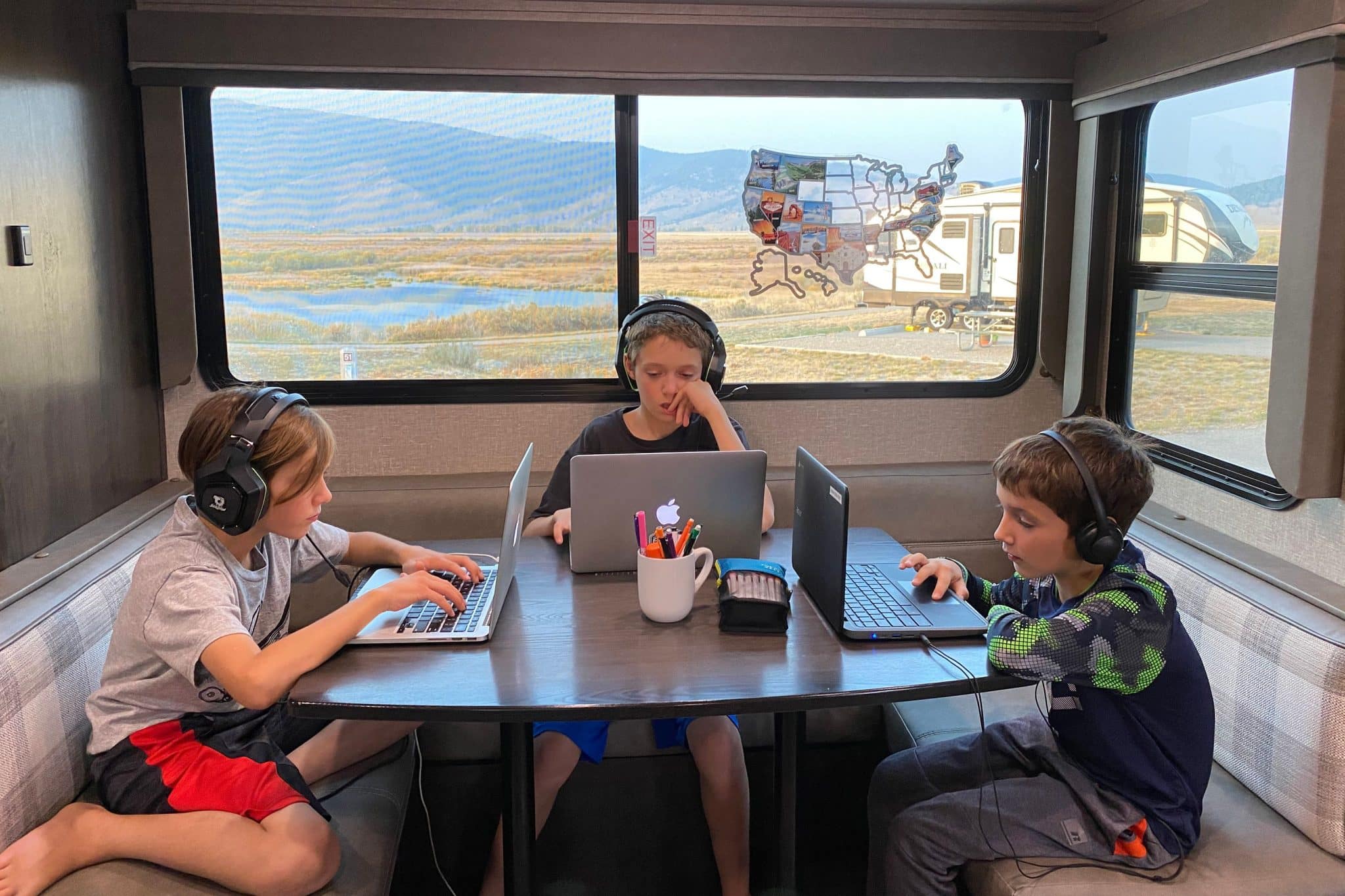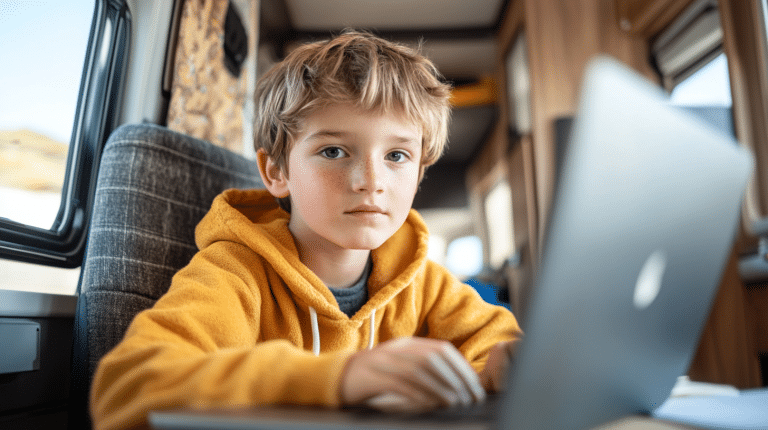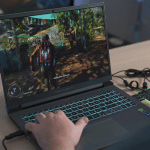In today’s digital age, the traditional confines of a classroom are becoming increasingly flexible. For families embracing the RV lifestyle, the rise of virtual learning has opened up unparalleled opportunities.
Combining the adventure of RV travel with the structure of online education allows children to receive a quality education while exploring the world.
This article explores how virtual learning can be effectively integrated into the RV lifestyle, offering a unique blend of academic rigor and real-world experiences.
The Benefits of Virtual Learning for RV Traveling Families

1. Flexibility and PersonalizationVirtual learning platforms offer a level of flexibility that traditional schooling cannot. Families can set their own schedules, allowing children to learn at their own pace.
This is particularly beneficial for RV travelers, who may be moving frequently or exploring different time zones. Personalized learning plans can cater to each child’s strengths and interests, making education a more engaging and effective experience.
2. Access and Inclusivity Traveling in an RV can take families to remote or rural areas where traditional schooling options are limited.
Virtual learning ensures that children have access to high-quality education regardless of their location. This inclusivity means that no matter where the road takes you, educational opportunities are always within reach.
3. Integration of Real-World Learning RV travel offers a wealth of real-world learning opportunities. From visiting historical sites to exploring national parks, the experiences on the road can complement and enhance the virtual curriculum.
Parents can integrate these adventures into their children’s studies, providing a hands-on approach to subjects like history, geography, and science.
4. Global Connections Virtual learning platforms often include opportunities for students to connect with peers from around the world.
This global interaction enriches the learning experience, fostering a sense of community and broadening perspectives. For RV travelers, this means that while their physical location is ever-changing, their children can still form lasting relationships and learn about diverse cultures.
5. Preparation for the Future The skills gained through virtual learning are invaluable in preparing children for the future. Proficiency in digital tools, self-discipline, and time management are just a few of the competencies that will serve them well in higher education and beyond.
The adaptability required for both RV living and virtual learning mirrors the demands of the modern workforce, setting children up for success in a rapidly evolving world.
Tips for Successful Virtual Learning on the Road
1. Establish a Routine Creating a consistent daily routine is crucial for maintaining focus and productivity. Designate specific times for learning, recreational activities, and exploration. This balance will help children stay engaged with their studies while still enjoying the freedom of RV travel.
2. Create a Dedicated Learning Space While space in an RV is limited, having a dedicated area for learning can help children concentrate. This could be a specific table or a corner of the RV equipped with all necessary supplies. A well-organized, distraction-free space is essential for effective virtual learning.
3. Ensure Reliable Internet Access A stable internet connection is vital for virtual learning. Invest in reliable Wi-Fi solutions, such as mobile hotspots or satellite internet, to ensure consistent access. Research the connectivity options available at your planned destinations to avoid interruptions.
4. Utilize Offline Resources When internet access is limited, having offline resources can keep the learning going. Download educational materials, videos, and assignments in advance. This way, children can continue their studies even in areas with poor connectivity.
5. Encourage Social Interaction Virtual learning can sometimes feel isolating, so it’s important to provide opportunities for social interaction. Encourage your children to participate in online study groups, extracurricular activities, and virtual field trips. Additionally, meeting other families on the road can foster in-person connections and friendships.
6. Take Advantage of Educational Apps There are numerous educational apps available that can supplement the virtual learning curriculum. These apps offer interactive and engaging ways to reinforce subjects, making learning fun and accessible.
Embracing the Adventure of Learning
Combining virtual learning with RV travel offers an unparalleled educational experience that blends academic knowledge with real-world adventures. It requires careful planning, flexibility, and a willingness to embrace the unknown.
However, the rewards are immense: a well-rounded, globally aware education that prepares children for a future without boundaries. As families hit the open road, they are not just exploring new landscapes—they are redefining the very essence of learning.










